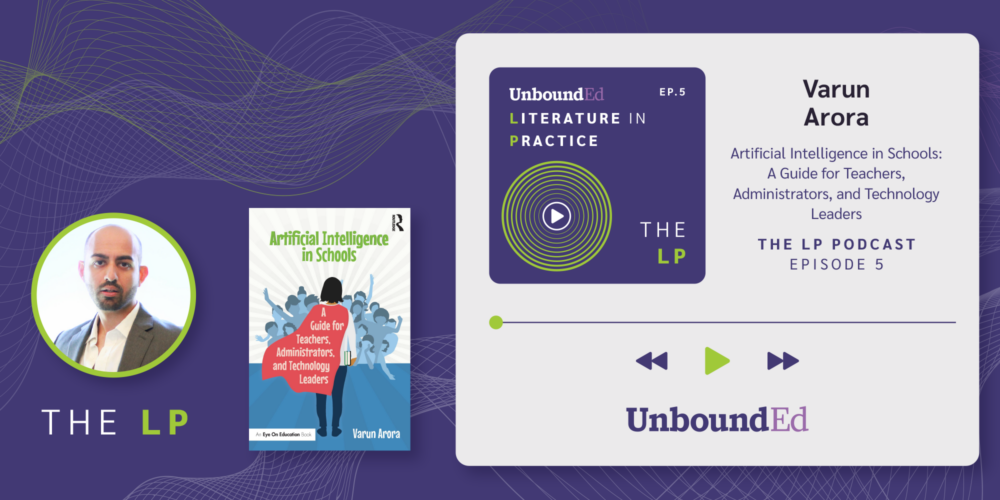We are in an era where excitement, fear, promise, and paranoia about the capabilities of artificial intelligence are a part of everyday conversation in our society as we are steadily integrating AI into essential elements of our lives. What does this mean for how we teach, learn, and do school? Will the inequities that exist in analog instruction continue to improve or worsen as digital technologies for teaching and learning evolve? Varun Arora invites us to explore opportunities to guide AI development in a manner that enhances teacher ownership of equitable instruction, instead of replacing or negating it, in his book Artificial Intelligence in Schools: A Guide for Teachers, Administrators, and Technology Leaders.
Key Takeaways
- The lag of the public school system, plus the fast evolution of AI, makes it hard for educators to find ownership and voice during these advances, but it’s important that we fight for it. Otherwise, more power in our profession is lost.
- Great teachers are great pattern recognizers. So is great AI. How can great teachers use their pattern recognition skills to direct fruitful outcomes from AI’s pattern recognition?
- AI technology, just like anything else a human creates, like a language, a building, a policy, or a practice, reflects culture and bias. This is not talked about enough and can have serious implications on education as AI becomes more prevalent.
- Random Access Memory, or RAM, represents the amount of data readily accessible in an operating and multi-tasking computer. AI in the classroom, like a good pre-AI curriculum, is supposed to expand and free up the RAM in a teacher’s mind so that recalling and acting on best practices becomes easier to concentrate on.
- All of these considerations require a decentralization of knowledge, ownership, and training with Education-related AI in order to make sure AI serves the purpose of amplifying organic human teaching and learning experiences instead of diluting, polluting, or substituting them. With folks like Varun leading the charge, I look forward to this process.
